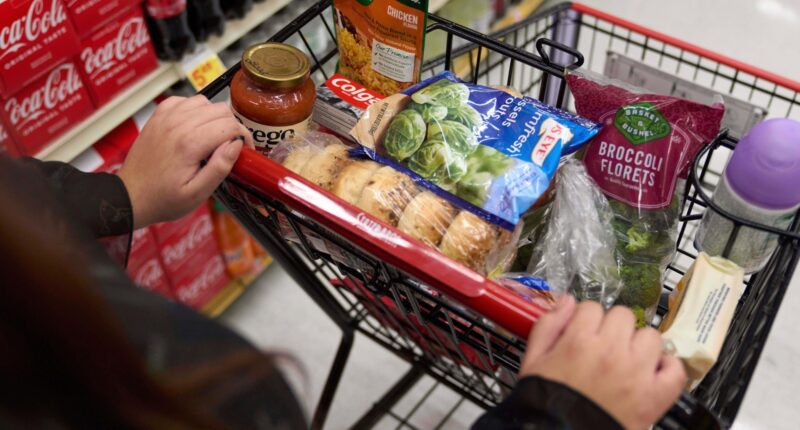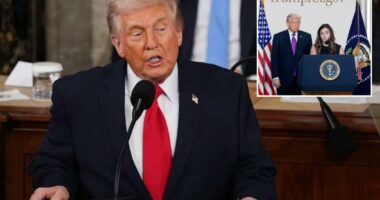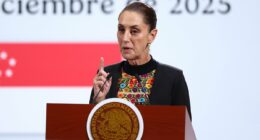Share this @internewscast.com
The U.S. Department of Agriculture has announced on its website that federal food assistance will not be distributed on November 1, intensifying concerns for families across the nation as the government shutdown continues.
This announcement follows the Trump administration’s decision not to utilize approximately $5 billion in reserve funds to maintain the flow of benefits through the Supplemental Nutrition Assistance Program (SNAP) into November. SNAP is a vital resource for about one in eight Americans, helping them purchase groceries.
The USDA stated, “In essence, resources have been exhausted. At present, no benefits will be issued on November 1. We are nearing a critical juncture for Senate Democrats.”
Since its commencement on October 1, this shutdown has become the second-longest in history. Although the Republican administration had previously ensured that SNAP benefits were covered for October, failing to resolve the deadlock could leave more Americans, particularly the most vulnerable, without essential support unless a political compromise is reached swiftly.
The standoff sees the administration holding Democrats accountable, while Democrats insist they won’t agree to resume government operations until Republicans engage in talks about extending expiring Affordable Care Act subsidies. Conversely, Republicans demand that Democrats consent to reopening the government before any negotiations.
In response, Democratic legislators have petitioned Agriculture Secretary Brooke Rollins to allocate contingency funds to cover the majority of next month’s benefits.
But a USDA memo that surfaced Friday says “contingency funds are not legally available to cover regular benefits.” The document says the money is reserved for things like helping people in disaster areas.
It cited a storm named Melissa, which has strengthened into a major hurricane, as an example of why it’s important to have the money available to mobilize quickly in the event of a disaster.
The prospect of families not receiving food aid has deeply concerned states run by both parties.
Some states have pledged to keep SNAP benefits flowing even if the federal program halts payments, but there are questions about whether U.S. government directives may allow that to happen. The USDA memo also says states would not be reimbursed for temporarily picking up the cost.
Other states are telling SNAP recipients to be ready for the benefits to stop. Arkansas and Oklahoma, for example, are advising recipients to identify food pantries and other groups that help with food.
Sen. Chris Murphy, D-Conn., accused Republicans and Trump of not agreeing to negotiate.
“The reality is, if they sat down to try to negotiate, we could probably come up with something pretty quickly,” Murphy said Sunday on CNN’s “State of the Union.” “We could open up the government on Tuesday or Wednesday, and there wouldn’t be any crisis in the food stamp program.”
.
















